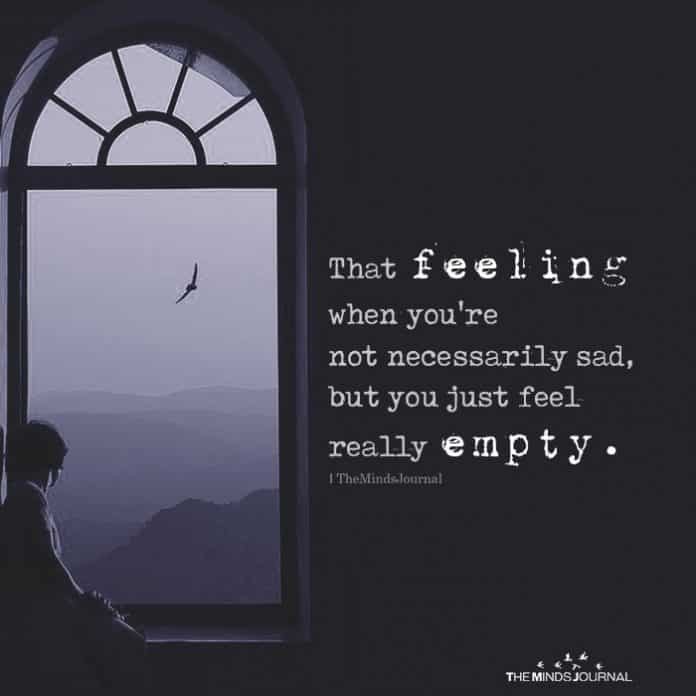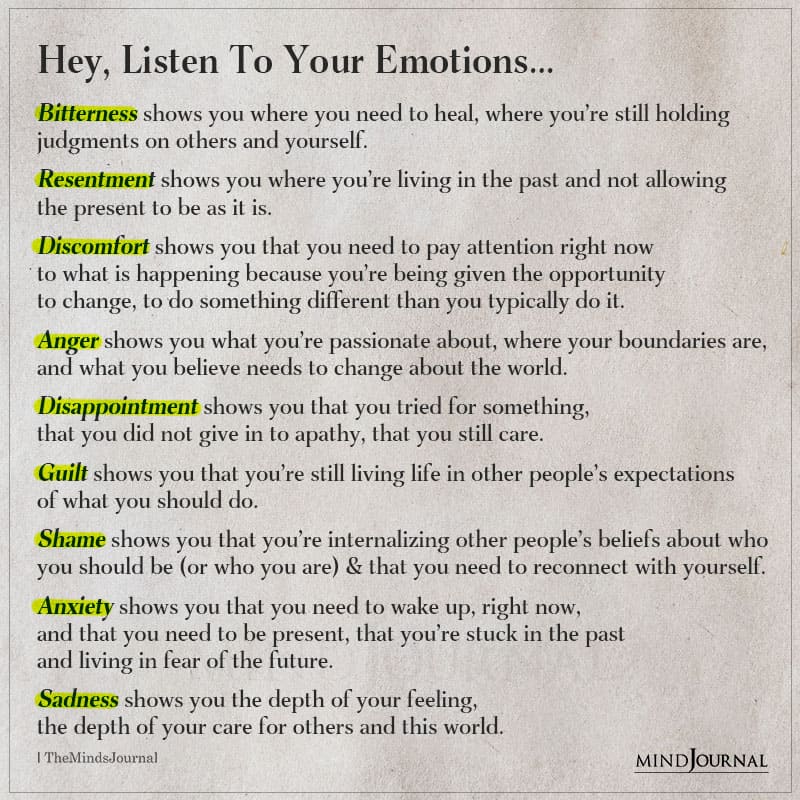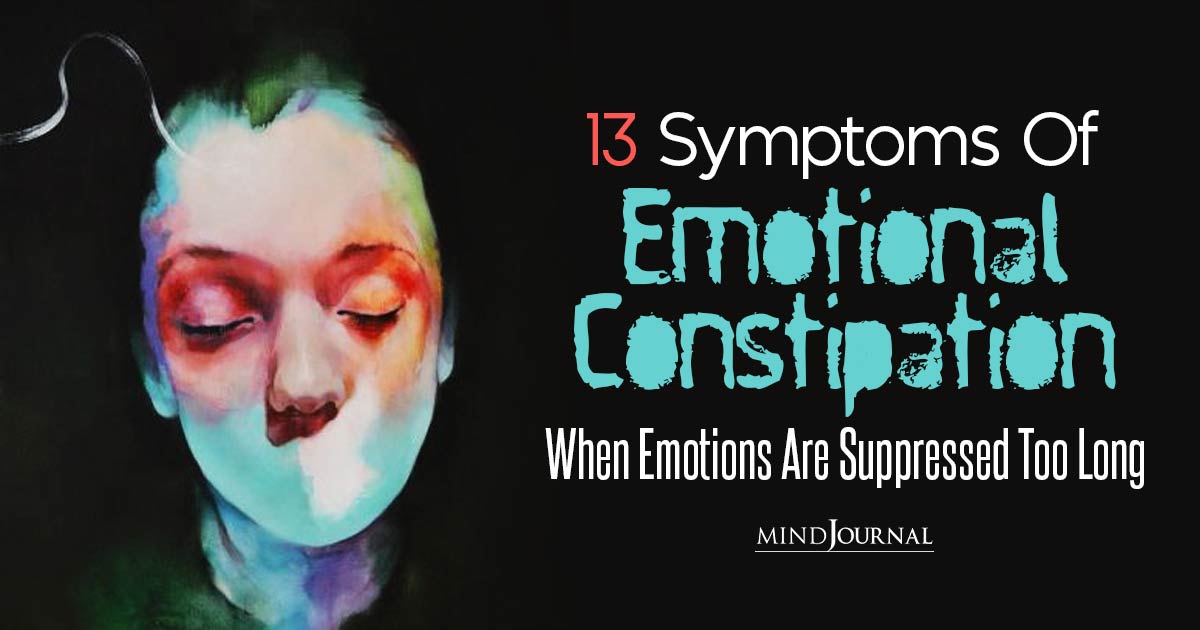Life today feels like a whirlwind. With endless tasks and pressures, it’s easy to side-line our feelings and emotions. This busy routine can lead you to a place where you’re stuffing down your emotions, a jam-up that’s often called – emotional constipation. In simple terms, it means you might be having a hard time understanding and expressing your real feelings.
Ever felt like you’re about to burst but don’t know why? Or you just can’t find the words to explain how you’re feeling? That’s a sign. This article will help you understand what is emotional constipation, major emotional constipation symptoms, and how to deal with emotional constipation, so that you can break free and get your emotional groove back.
After all, understanding and expressing your emotions is key to a happier and more balanced life. Let’s dive in and clear the blockages, ensuring our feelings flow smoothly.
First, let’s find out what is emotional constipation exactly.
Related: Unpacking the Dangers of Alexithymia: The Risks of Ignoring Emotions for Men
What Is Emotional Constipation?
Emotional constipation is when you have trouble showing or dealing with your feelings. Imagine feeling really upset but stopping yourself from crying, or being angry and just letting it bubble inside without talking about it.
This can make small problems feel huge or even lead to headaches. It’s like holding in a sneeze; eventually, it’s going to burst out when you least expect it.
Over time, keeping all this in can make us feel even more stressed or lead to sudden emotional outbursts over tiny things. It’s not just about being sad or mad; it’s about not letting out any emotion, whether it’s joy, excitement, or even relief.
Think of it like holding onto a bunch of balloons; if you grip them too tightly, they might just pop or fly away unexpectedly. The key is learning how to let go a little and let those emotions flow naturally.

Emotional Constipation Symptoms
1. Suppressed Emotions
This is when you consciously or subconsciously hold back on expressing how you truly feel. It’s like when you’re devastated inside but don’t shed a tear, even when alone.
2. Overreactions
Sometimes, a tiny issue can provoke an unexpectedly strong reaction. It’s like crying over spilled milk, literally, because you’re not really upset about the milk; it’s other pent-up emotions spilling out.
3. Emotional Numbness
There are moments when big things happen, good or bad, but you feel nothing. It’s like watching life on mute, detached from moments that should stir emotion.
4. Avoidance
Dodging emotions by steering clear of certain situations or people. For example, skipping a friend’s party because you don’t want to risk feeling envious or sad.
5. Physical Symptoms
Our body sometimes speaks for our heart. You might notice headaches, stomach issues, or even unexplained aches when emotions aren’t addressed.
6. Isolation
Choosing solitude not out of preference but as a defence mechanism. It’s not about enjoying alone time, but fearing emotional confrontations.
7. Denial
Not letting oneself recognize or accept strong feelings. It’s like feeling anger towards a loved one but brushing it off as “just being tired”.
8. Restlessness
Feeling a consistent itch of unease, an emotional itch you can’t pinpoint or scratch.
9. Decreased Energy
When emotions get bottled up, they can be draining. It’s like carrying a heavy backpack all day, every day, with no relief.
10. Difficulty in Relationships
When emotional constipation prevails, bonding becomes challenging. It’s hard to connect with someone when there’s an emotional wall in between, leading to misunderstandings and strain.
11. Restless Leg Syndrome (RLS)
It involves a strong need to move the legs, often accompanied by throbbing or itching sensations. Emotional stress from issues like emotional constipation can intensify RLS, disrupting daily tasks.
12. Binge-eating
When you feel particularly overwhelmed and have been consistently repressing your feelings, you might end up consuming a lot more food than you usually do, in order to cope with the hard feelings.
13. Insomnia
Insomnia, marked by trouble sleeping or feeling unrested despite sleeping, can stem from stress or emotional turmoil. It might indicate underlying emotional constipation.
Why Is Emotional Constipation Dangerous?
Alright, let’s break this down a bit. Think of emotional constipation as that friend who overstays their welcome at a party. At first, it’s okay, but over time, it gets uncomfortable, and if not addressed, it can become a huge buzzkill.
Imagine constantly stuffing a suitcase with clothes. Eventually, the zipper’s going to break. In the same way, when we bottle up our emotions, there’s bound to be a “zipper moment”.
This might look like bursting into tears because you can’t find your keys or snapping at someone over a minor thing. It’s not really about the keys or that small issue – it’s everything else you’ve been holding onto.
But it’s not just about unexpected emotional outbursts. Holding onto so much can be exhausting. Ever felt that weird ache or headache and you’re not sure why? Or those nights where you’re just tossing and turning, trying to catch some Z’s? Our bodies sometimes wave the white flag when we’re emotionally overwhelmed.
Then there’s the friend zone – and not the good kind. By shoving your feelings under the rug, you can drift from the people who matter. And that’s a real bummer because connecting with loved ones and sharing how you feel is like soul food.
So, in a nutshell, while it might seem easier to just “deal with it later”, letting those feelings pile up isn’t doing any favours for your head, your heart, or your friendship.
Now, let’s find out how to deal with emotional constipation.
Related: 6 Ways People Avoid Their True Feelings Which Does More Harm Than Not
How To Deal With Emotional Constipation? 8 Easy And Effective Things You Can Do
1. Give emotional journaling a go.
If you are thinking about how to deal with emotional constipation, then this is one of the best things you can do.
Think of this as a daily emotional detox. Grab a pen, a notebook, and let your feelings flow. No judgment, no censoring—just raw, unfiltered thoughts.
Over time, not only will you spot patterns and triggers, but you’ll also find relief in seeing your emotions on paper, making them more tangible and manageable.
2. Embrace your artistic expression.
Dive into the arts, be it painting, dancing, singing, or even pottery. These activities allow your emotions to find a tangible form, offering both release and reflection.
And here’s the deal: you don’t need to be an expert. It’s all about letting those feelings out creatively.

3. Open up and try to speak up about your feelings.
Speaking about your feelings can be transformative. Whether it’s with a trusted friend over coffee or a professional therapist in a session, vocalizing your emotions can lighten your emotional baggage. It’s therapeutic to be heard, understood, and validated.
4. Try out ‘active release’.
Physical activity isn’t just for toning muscles; it’s also a powerhouse for emotional well-being.
Whether you’re dancing in your living room, jogging in the park, or joining a local sports team, moving your body helps release emotional tension and boosts those feel-good endorphins.
5. Practice meditation and deep breathing every day.
Another one of the best things to do, if you are thinking about how to deal with emotional constipation is these two activities.
Picture this as a calming reset button for your mind. Through deep breaths and focused meditation sessions, you can centre yourself, gain clarity, and develop a stronger, more harmonious relationship with your emotions.
6. Set boundaries.
In this demanding world, it’s essential to set your limits. If something’s draining you emotionally, it’s okay to step back.
Protecting your emotional energy is not selfish—it’s necessary self-care. Always remember that you can never pour from an empty cup, nor should you try to.
Related: Emotional Emptiness: What To Do When You Feel Emotionally Empty
7. Join a support group.
Being amidst people who understand can be a balm for the soul. There are numerous groups dedicated to various challenges and experiences. Sharing in a safe space can lead to insights, mutual support, and a sense of belonging.
8. Educate yourself.
Dive into books, workshops, or seminars on emotional intelligence and mental well-being. The journey of understanding your emotions better is empowering.
When you arm yourself with knowledge, you’re better prepared to navigate the complex world of feelings.

Bottomline
Life’s too short to stay emotionally backed up. Emotional constipation might sound quirky, but it’s an apt description of how some of us grapple with our feelings. Recognizing it is the first step. From there, it’s all about finding ways to express, release, and most importantly, feel.
Remember, it’s okay to seek help when things get tough. Emotional health is as crucial as physical health, and there’s no shame in seeking relief. The next time you feel like your emotions are bottled up, uncork and let them flow. You owe it to yourself.










Leave a Reply